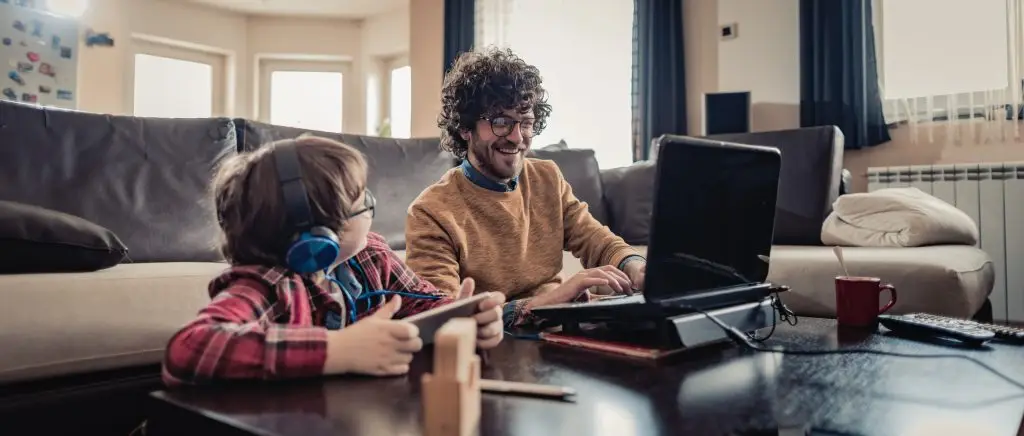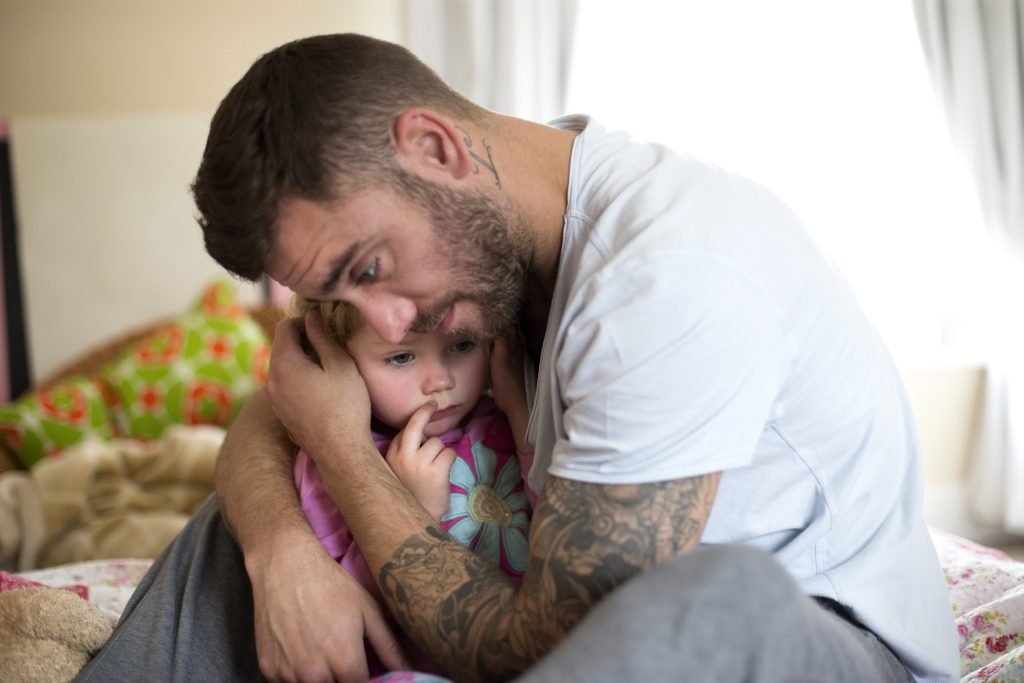Cultivating Self-Compassion for Parents in the Face of Challenges

Let’s face it, parenting is hard for all parents.
For many of us, family is one of our most high-held values. We all want to do well for our children and it is important to us (to varying degrees depending on the person) that others see us as good parents.
No parent wants to screw up their kids and so we place a lot of pressure and judgement on ourselves, and each other, to do parenting well.
The consequence is that when we make a mistake, or things feel challenging, we can be really hard on ourselves because the stakes to succeed can feel so high.
It is a difficult reality that by default, parents of neurodivergent kids have far more hard days compared with parents of neurotypical kids. Parents of neurodivergent kids have to navigate all the things that parents of neurotypical children have to, such as childhood stages, behaviours etc. However, we also navigate things like regularly being misunderstood, invalidation and judgement from those around us, stigma and prejudice from society at large, meltdowns, violent outbursts from our children as well as sensory overload and burnout.
Sometimes every day can be hard.
When things constantly feel hard this can wear us down leading to exhaustion, isolation and deteriorating mental health for parents.
When stressors build up, parents are expected to cope with the feelings of distress these may bring and continue supporting their child through these difficulties (Abidin, 1990). Factors of children’s temperament and behaviour, parents’ adaptability and personality, and the quality of interactions between the parent and child significantly contribute to parents’ feelings of stress (Abidin, 1990). When overall feelings of stress are higher, this is associated with increased symptoms of anxiety and depression in both the parent and their child (Fonsesca et al., 2012).
Emma McCaughan

Self-Compassion and Autistic Individuals and Their Families
In their research paper, Self-Compassion Changed My Life: The Self-Compassion Experiences of Autistic and Non-Autistic Adults and its Relationship with Mental Health and Psychological Wellbeing, by Ru Ying Cai et al. Autism Dev Disord, 2023, the researchers found that many autistic individuals and families of autistic individuals experience higher rates of anxiety and depression.
Autistic individuals and their families also have a hard time finding therapists who can treat them because many therapists do not understand autism. This issue is compounded if the parent themself is autistic, as autistic individuals tend to have lower levels of self-compassion compared with non-autistic people. The study found that autistic individuals tended to be more self-critical. The more autistic traits you have the lower your level of self-compassion. Self-compassion was found to be a protective factor for mitigating the risk of developing vulnerabilities such as anxiety and depression.
The Impact of Self-Compassion on Parent Well-being
Many parents interpret the ‘hard’ days as “I am doing this wrong”. This false belief can lead us to be unkind and often even cruel towards ourselves. Sometimes the things that we say to ourselves, we wouldn’t even say to our worst enemy.
Neurodivergent individuals and parents of neurodivergent children on average receive a lot more negative feedback from others compared to neurotypical individuals/parents. This can exasperate feelings of self-judgement which has flow-on effects that heighten mental health challenges.
Self-compassion is the practice of treating yourself like you would a good friend and recognising that we all make mistakes and are doing the best we can.
Studies have shown that a regular practice of self-compassion as parents can significantly improve our mental health.
Research by Kristin Neff, PhD — a leading expert in self-compassion — has shown that people who practice being kinder to themselves are less likely to be anxious, stressed, and depressed. They’re also more likely to be happy and optimistic about the future.
PsychCentral
According to Dr Kristen Neff (a prominent researcher in this area), self-compassion can benefit us in the following ways:
- Self-soothing
- Better self-esteem
- Higher life satisfaction
- More fulfilling relationships
- Reduced feelings of depression and anxiety
- Increased motivation
- Promoting a growth mindset
Dr Neff, who is the mum of an autistic son herself, noticed that when she was kinder to herself she had a greater capacity to parent her son in a calm connected way. Neff noted:
Self-compassion is including ourselves in the circle of compassion – The greater the needs of our children the greater the parent’s need for self-compassion.
Dr Kristen Neff
Are you holding a lot of grief at the moment? Download my Free Grief Guide, a gentle, supportive place to start unpacking some of what you are holding.

Why Self-Compassion is Difficult for us as Parents
Negative self-talk is second nature to a lot of people. It is difficult for us to have compassion for ourselves especially if we have experienced trauma.
Many parents of neurodivergent kids are neurodivergent themselves (many of us unidentified) or grew up in a family that followed the parenting approach of reward and punishment. We might have religious trauma or have been bullied at school or in the workplace.
All of these experiences will have not only caused us to develop a lot of self-criticism but talking kindly to ourselves can also bring up painful memories and emotions. Changing how we speak to ourselves can also make us feel unsafe as our self-critical behaviour is something that our nervous system is unfamiliar with. Research has shown that our nervous system craves familiarity to feel safe, even if that familiarity is unhealthy for us.
Another barrier to self-compassion for parents is the misconception that self-compassion equals self-pity. In contrast, self-compassion is the antidote to self-pity. When we indulge in self-pity or ‘poor me’, we are likely to get into a thought spiral of how bad things are for us.
Self-compassion recognises that life is hard for everyone.
Research shows that self-compassionate people are more likely to engage in perspective-taking rather that focussing on their own distress
Neff,K. & Germer, C. (2018)

Overcoming Guilt and Shame: Embracing Self-Compassion
According to Dr Brene Brown, and her work on shame and connection, our experience of shame and the belief that that we are inherently ‘bad’ and unworthy of love disconnects us from ourselves and others.
Our children are constantly growing and changing (as are we) and their needs change over time too. None of us was handed a ‘master manual’ on raising children when we became parents. Incidentally, even less is known about how to raise neurodivergent children. We have to figure it out as we go – as with most roles in life, we learn on the job through trial and error.
As with all jobs that we learn through experience, mistakes are inevitable.
The difference between guilt and shame is how we internalise our mistakes.
Guilt says, “I made a bad decision”.
Shame says, “I am a bad person/parent”.
When we feel guilty about our mistakes, this leaves us room to see the error of our ways and to make better decisions.
However, many parents go straight to shame, “I am a bad person/parent”. When we start to see ourselves through the lens of shame we gather evidence to back up this belief about ourselves. When this happens we stop seeing all our good qualities and all the things we have done right.
According to psychologist, Dr Becky Kennedy, seeing ourselves as ‘good inside’ doesn’t free us from the responsibility of making amends for our mistakes. However, when we can apply multiplicity to our perspective of ourselves (the practice of seeing that two things can be true). We can be both a parent who is trying their best and a parent who gets it wrong – that is just part of parenting.
Self-compassion allows us to see that everyone makes mistakes, but that our mistakes don’t define who we are.

How Practicing Self-Compassion can Make us Better Parents
If the evidence of how self-compassion can improve your mental well-being isn’t motivation enough to give it a try, research has shown that practising self-compassion can make you a more effective parent.
In his book I 💓Me, David R. Hamilton PhD writes about something he calls the ‘self-worth contagion’.
Basically speaking when we are growing up we sense how our primary caregiver feels about themselves through their emotional frequency and how they speak to or about themselves. Our nervous systems pick up on this as the ‘normal’ way to be and we take on their sense of self-worth for ourselves. For example, if your primary caregiver had a self-worth of 4 (out of 10) you would probably have a self-worth of 4 too.
The reason for this is mirror neurons. Mirror neurons are special brain cells that allow us to learn, understand and imitate the behaviours of others. Our brains are approximately 33.5% mirror neurons, they are present at birth and are pre-verbal. This is why a newborn infant can poke out its tongue in response to an adult poking out their tongue. Mirror neurons are also what make it possible for us to use co-regulation as an effective parenting to soothe our dysregulated child.
Neuroscience has shown that the threat response in neurodivergent children is naturally higher compared to that of neurotypical children. This is further heightened when our children are dysregulated or having a meltdown.
When we are running an inner dialogue of self-criticism, and the emotions that are a consequence of this, our children can pick up on this. But because what our children experience through their mirror neurons is pre-verbal or a felt sense, they are unable to distinguish whether or not our emotions are about them or us.
They simply know that it feels unsafe.
When we can create safety in ourselves it is easier for us to create relational safety for our children.

Strategies for Cultivating Self-Compassion in Parents
Self-compassion is based on 3 principles: mindfulness, common humanity and self-kindness.
Mindfulness
As with any new habit, we try to adopt into our lives we first need to be mindful of the old habits that we are trying to replace. This requires us to mindfully and objectively observe our negative thoughts and intentionally reframe our thoughts into more supportive and encouraging ones.
Common Humanity
Common humanity is central to self-compassion. When we lean into our common humanity we recognise that making mistakes is a common human experience. We are all works in progress and are learning as we go.
Often parenting is hard not because we are doing it wrong, but simply because it is hard for all people!
Self-Kindness
Self-kindness is the practice of talking to yourself like you would a good friend. How would you treat a friend who made a mistake with their parenting? What are the things you would say to them? How would you encourage them if they were going through a hard time?

Integrating Self-Compassion into Daily Parenting Practices
One of the simplest ways to integrate self-compassion into a daily practice is through the self-compassion break. This simple three-step practice incorporates all three principles of self-compassion and can be practised anywhere.
- Step one – objectively observe your situation and recognise that this is a moment of struggle. For example, you might tell yourself, “This is hard”.
- Step two – remind yourself that you are not alone. This situation would be hard for other people too. For example, you may tell yourself, “Other people struggle with this too” or “This is a hard situation for everyone”.
- Step three – Treat/speak to yourself like you would a friend. For example, you might hug yourself, or tell yourself something like, “This is important to you, you wanted to do a good job” or “It’s going to be okay, we will figure this out together”.
There are many ways to integrate self-compassion into your daily practice. The book Mindful Self-Compassion Workbook, by Dr Kristin Neff and Dr Christopher Germer, is full of daily practices to support your self-compassion journey. Dr Neff also has many amazing resources on her website: https://self-compassion.org/
Self-compassion for parents is also at the foundation of the work I do with parents whose children are in burnout. If you need support with parenting through burnout you can find support and resources HERE
References
Neff, K. & Germer, C. (2018). Mindful Self-Compassion Workbook: A Proven Way to Accept Yourself, Build Inner Strength and Thrive. (Guilford Press).
Hamilton, D. (2017). I Heard Me: The Science of Self-Love. (Hay House).
Ying, R. Gibbs, V. Love, A. (2022). Self-Compassion Changed My Life: The Self-Compassion Experiences of Autistic and Non-Autistic Adults and its Relationship with Mental Health and Psychological Wellbeing. (Researchgate).
McCaughan, E. (2022). The Mental Health and Wellbeing of Parents of Children With and Without Developmental Disabilities in Aotearoa New Zealand. (University of Canterbury).
https://psychcentral.com/blog/practicing-self-compassion-when-you-have-a-mental-illness
Meet Tanya
Tanya Valentin is an AuDHD person, mum of three, family coach, author and podcaster.
She specialises in guiding parents of Autistic & ADHD children and teens through burnout recovery with empathy & support.
She is the founder of From Burnout To Balance and the host of the podcast with the same name.

